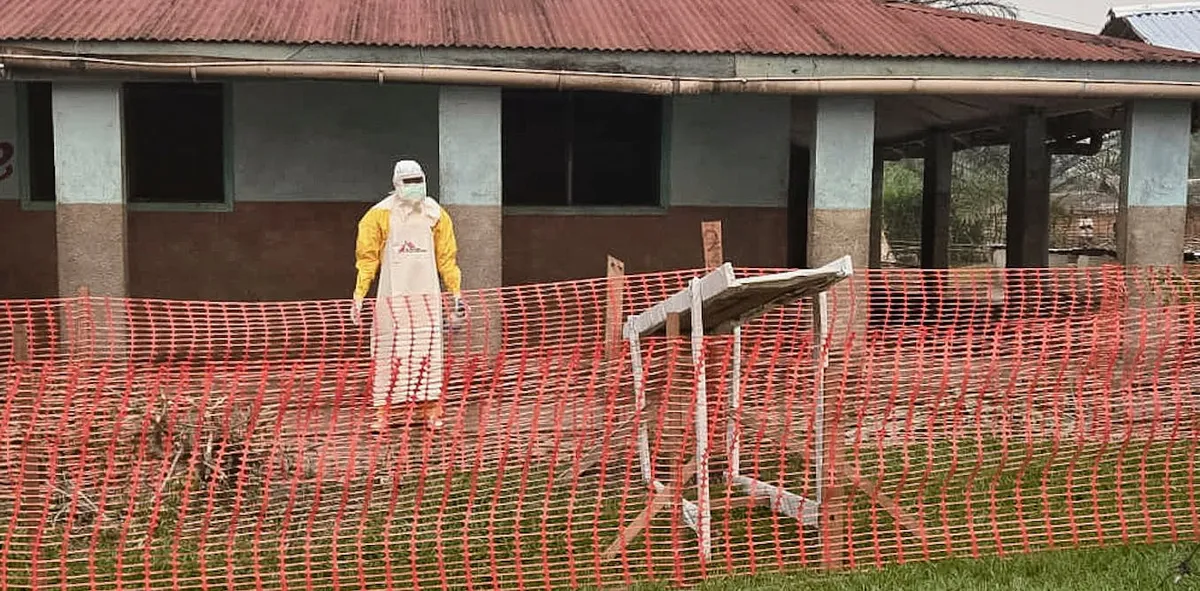
The Democratic Republic of the Congo (DRC) has announced a new outbreak of Ebola in the Kasai Province, attributed to the most lethal strain of the virus: the Zaire Ebola virus. This outbreak originated from a 34-year-old pregnant woman who was admitted to the hospital on August 20. Tragically, she succumbed to the disease just five days later. Following her admission, two health workers who provided care for her also contracted the virus and subsequently died.
As of September 15, the DRC has reported a staggering 81 confirmed cases and 28 deaths, which includes the loss of four health workers. The DRC has experienced 15 prior Ebola epidemics, with the largest occurring in 2019 and the most recent in 2022. However, genetic analysis suggests that this outbreak did not stem from previous infections but likely resulted from a spillover event from an animal to a human.
Ebola virus disease was first recognized in 1976 near the Ebola River in Zaire, which is now part of the DRC, and also in Sudan. The natural host of the Ebola virus is fruit bats. Humans can become infected through contact with infected animals, which may include bats, chimpanzees, antelopes, or porcupines. The virus primarily spreads through direct contact with the blood or other bodily fluids of infected individuals.
The incubation period for Ebola can range from two to 21 days, and symptoms often emerge suddenly. Initial signs include fever, fatigue, muscle pain, headaches, and sore throat, which can escalate to vomiting, diarrhea, abdominal pain, rash, bleeding, and shock. Without prompt medical intervention, the mortality rate can be alarmingly high, reaching between 50% to 90%, largely depending on the quality of healthcare available.
The Ebola virus can spread swiftly within families, healthcare facilities, and during funerals, where traditional practices may involve washing or touching the deceased. During the most extensive outbreak recorded in 2014, over 800 health workers became infected, with two-thirds losing their lives. Front-line healthcare staff are particularly vulnerable due to close contact with infected patients and inadequate protective equipment.
Moreover, survivors of Ebola can harbor the virus in certain body parts—such as the brain, eyes, or semen—sheltered from the immune system for extended periods. In rare cases, the virus may reactivate in survivors, leading to new transmission chains.
The largest Ebola outbreak on record began in Guinea in 2013 and rapidly spread to Liberia and Sierra Leone, infecting over 28,000 individuals and resulting in more than 11,000 deaths. Contributing factors to the high mortality rate included delayed detection, a sluggish international response, weak healthcare systems, widespread mistrust, and traditional funeral practices.
Currently, the DRC is grappling with multiple concurrent outbreaks, including large-scale epidemics of mpox, cholera, and measles, all of which require significant resources and attention. Compounding these challenges is armed conflict, which hampers transportation and limits access to affected communities. Although Kasai Province is relatively remote, its proximity to Tshikapa city and the border with Angola poses an increased risk of further spread due to cross-border travel for trade and work.
Fortunately, this outbreak can be mitigated through the administration of the Ervebo vaccine (rVSV-ZEBOV), which demonstrated 100% effectiveness in clinical trials when administered immediately after exposure to the virus. The vaccine's effectiveness drops to 95% if given 12 or more days post-exposure, and real-world effectiveness reached 84% during the last DRC outbreak. The World Health Organization (WHO) is actively supporting vaccination efforts, having dispatched 400 doses, with plans for additional supplies.
Vaccination campaigns utilize a “ring vaccination” strategy, targeting known case contacts and front-line healthcare workers. Besides vaccination, effective Ebola outbreak management involves early isolation of suspected cases, comprehensive contact tracing, and quarantine protocols. Sufficient hospital capacity for infected individuals is essential; establishing field hospitals was pivotal in controlling the 2014 West African epidemic. Practicing safer funeral rituals that avoid traditional customs—such as washing or touching bodies—also plays a crucial role in preventing transmission.
Early detection of Ebola outbreaks is critical. Platforms like EPIWATCH, powered by artificial intelligence, have proven invaluable in recognizing unusual disease patterns. A notable increase in outbreak reports from the DRC was detected in early September, correlating with the case report submitted to the WHO. Reports of symptoms leading up to the official confirmation in Kasai further emphasize the need for vigilance. While these signals do not replace laboratory diagnostics, they can provide vital early warnings to health authorities, especially when diagnostic capabilities are limited.